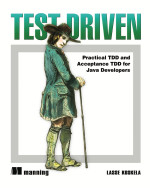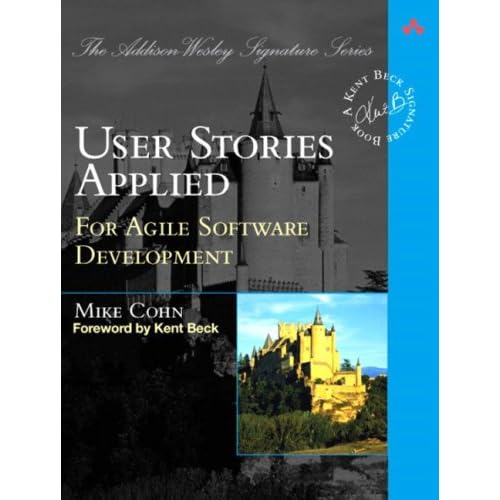The plan is to do a 2-week-bootcamp right before christmas to learn / get experience with test driven development (TDD). I already tried to practice it and I must say that it's hard. Though writing tests before you implement feels natural (I somewhere read "developing without testing is like driving a car without fastening your seatbelt"), it is so much contradictory to what I'm used to develop (test last development; if tests at all). Because of that I looked for some help in books.

From the first one I only read two chapters online:
Test Driven: Practical TDD and Acceptance TDD for Java Developers by Lasse Koskela. You can find the chapters
here. As I'm a .NET-developer, a Java-book is not worth purchasing, I think. However, I mention this book because these two chapters are really good. The first one is about beginning TDD. This is the usual stuff about red, green, refactor by example. The second chapter is the one that enlightend me. It talks about how to integrate the testing in the development-process (eXtreme Programming, that is) with acceptance TDD. The following picture is from Lasse's book and opened my eyes. Never before was the test-integration so clear to me. This is the only way how a developer will write good tests: write an acceptance test and make it green via several unit test driven development-cycles.

The other chapters sound interesting - maybe I'll find this book in a library.
 Test-Driven Development in Microsoft .NET
Test-Driven Development in Microsoft .NET by James W. Newkirk and Alexei A. Vorontsov is the other book I recently read. I got this book from my good friend Uwe (*winkeWinke*). This book has a foreword by Kent Beck - so this has to be good, I thought. But actually: it isn't :( The first three chapters are OK - the standard-introduction section. Then, the book tries to write a whole example-application with TDD. I must admit, this is courageous - but it fails. I don't think that someone will work through all this code in order to understand how to test a database, a web-service, a web-client, etc. At the end, all tests are more or less the same. I think it is more helpful to learn TDD with your own little project than with this book. By the way, the technology used (ADO.NET instead of Entitiy Framework, ASP.NET Web Service instead of WCF, ASP.NET instead of Silverlight!?) is old...





